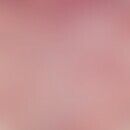Biographical detailsThis section has been translated automatically.
(¤ 1854, † 1915) bacteriologist. Paul Ehrlich was born in Strehlen, Lower Silesia (today Strzelin) in 1854 as the son of the Jewish liqueur manufacturer and lottery winner Ismar Ehrlich and the merchant's daughter Rosa (née Weigert). He attended the grammar school St. Maria Magdalena in Breslau. Here he reached the Matura (A-levels) together with his schoolmate Albert Neisser in 1872. He then studied medicine in Breslau, Strasbourg, Freiburg/Breisgau and Leipzig. 1877 State examination in Breslau. Already as a student he made his mark with the discovery of mast cells in the connective tissue. After his doctorate he becomes assistant and senior physician at the Charité in Berlin. There he creates the foundations of modern haematology by colouring blood cells. 1883 Marriage of the daughter of an industrialist Hedwig Pinkus, with whom he has two daughters. 1884 Ehrlich is awarded the title of professor due to his success in vital staining. 1887 he habilitated in internal medicine. In 1891 Robert Koch appointed him to the newly founded Institute for Infectious Diseases in Berlin. Ehrlich worked here on research into immunity. In 1895 Ehrlich takes over control of the work on the diphtheria serum. In 1896 Ehrlich is appointed director of the new Royal Institute for Serum Research and Serum Testing in Steglitz (Berlin). 1899 Relocation of the Institute to Frankfurt/Main and expansion to the Institute for Experimental Therapy, where Ehrlich turns his attention to cancer research and chemotherapy of infectious diseases. 1904 Ehrlich is awarded a full honorary professorship in Göttingen. In 1906 the Georg-Speyer-Haus for Chemotherapy is founded for him at the Frankfurt Institute with the help of endowment funds. 1908 Nobel Prize. 1910 Development of the remedy known as Salvarsan (see below syphilis) for the early stages of syphilis. It is the first specifically causative chemotherapeutic agent. Professional criticism of the remedy is linked to anti-Semitic attacks on Ehrlich's person. 1914 Appointment as full professor at the new Frankfurt University. Shortly after the beginning of the First World War, Ehrlich signs the nationalist "Appeal to the Cultural World". Paul Ehrlich dies in Bad Homburg on August 20, 1915.



